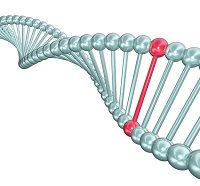‘Pain Gene' Identified Through Those Who Can't Feel Physical Pain
People with a rare inherited condition known as "congenial insensitivity to pain" (CIP), which makes it impossible for them to feel pain, may hold the answer to providing pain relief for patients suffering with chronic pain.

People with a rare inherited condition known as “congenial insensitivity to pain” (CIP), which makes it impossible for them to feel pain, may hold the answer to providing pain relief for patients suffering with chronic pain.
Researchers from the University of Cambridge studied individuals with CIP in order to pinpoint a gene responsible for the phenomenon. They suspected that they would find certain pain-sensing neurons missing in those with CIP, causing the pain suppression.
“The ability to sense pain is essential to our self-preservation, yet we understand far more about excessive pain than we do about lack of pain perception,” one of the lead authors, Geoff Woods, MB, ChB, MD, MRCP, FRCP, said in a news release.
The team evaluated the genetic makeup of 11 families affected by CIP from Europe and Asia. By performing nerve biopsies, the investigators were able to determine any alterations that led back to pain. It was discovered that there were variations in the gene PRDM12 in those with the condition.
According to study results published in Nature Genetics, the researchers discovered 10 mutations in the one gene alone. The individuals with CIP had 2 copies of the variant while those without it only had one. Important light was shed on pain perception by studying both those affected and unaffected by CIP.
“Both are equally important to the development of new pain treatments — if we know the mechanisms that underlie pain sensation, we can then potentially control and reduce unnecessary pain,” Woods said.
Previous research looked at the group of DNA molecules, chromatin, and identified PRDM12 as a contributor to causing changes. However, these new findings showed that all modifications within the gene inhibited the pain response.
The study’s first author, Ya-Chun Chen from the university’s Department of Genetics, explained that this discovery could lead to new painkillers — an outcome that has happened with other recent gene mutation revelations.
“This could potentially benefit those who are at danger from lack of pain perception and help in the development of new treatments for pain relief,” Chen concluded.